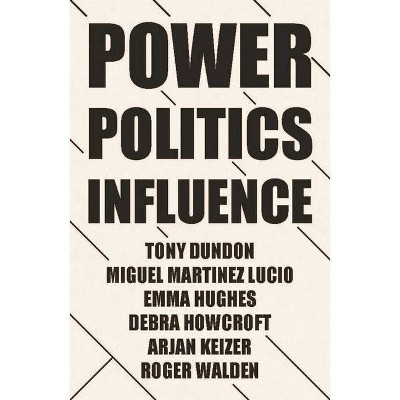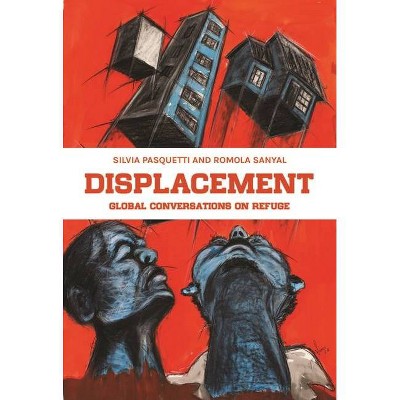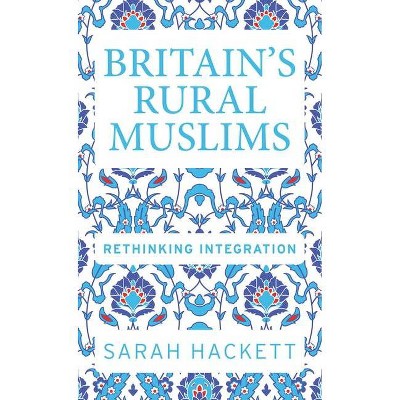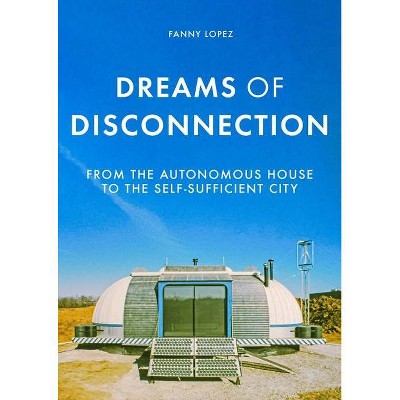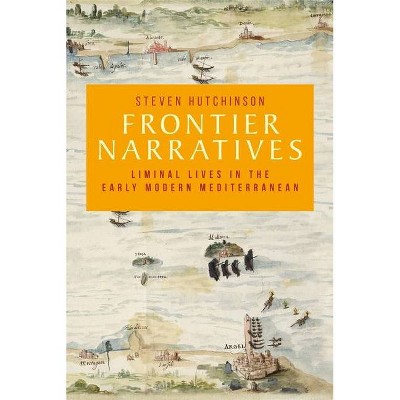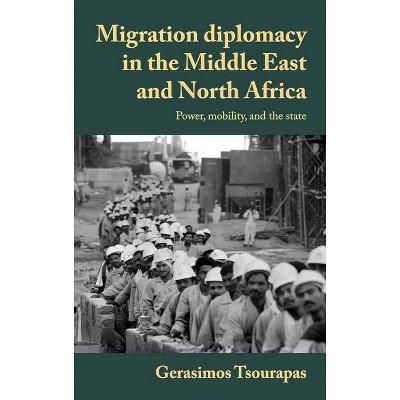Bordering Britain - (Manchester University Press) by Nadine El-Enany (Paperback)
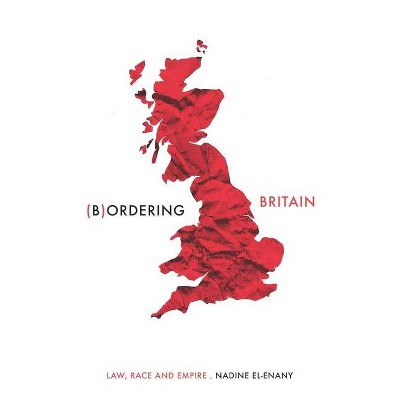
Similar Products
Products of same category from the store
AllProduct info
<p/><br></br><p><b> About the Book </b></p></br></br>(B)ordering Britain argues that Britain is<i> </i>the spoils of empire, its immigration law is colonial violence and irregular immigration is anti-colonial resistance.<p/><br></br><p><b> Book Synopsis </b></p></br></br>(B)ordering Britain argues that Britain is<i> </i>the spoils of empire, its immigration law is colonial violence and irregular immigration is anti-colonial resistance. In announcing itself as postcolonial through immigration and nationality laws passed in the 60s, 70s and 80s, Britain cut itself off symbolically and physically from its colonies and the Commonwealth, taking with it what it had plundered. This imperial vanishing act cast Britain's colonial history into the shadows. The British Empire, about which Britons know little, can be remembered fondly as a moment of past glory, as a gift once given to the world. Meanwhile immigration laws are justified on the basis that they keep the undeserving hordes out. In fact, immigration laws are acts of colonial seizure and violence. They obstruct the vast majority of racialised people from accessing colonial wealth amassed in the course of colonial conquest. Regardless of what the law, media and political discourse dictate, people with personal, ancestral or geographical links to colonialism, or those existing under the weight of its legacy of race and racism, have every right to come to Britain and take back what is theirs.<p/><br></br><p><b> From the Back Cover </b></p></br></br>"Immigration law teaches white British people that Britain and everything within it is rightfully theirs. 'Others' are here as their guests. Yet Britain would not be the wealthy, plentiful place that it is without its colonial history. We should not wait for the law to rule on our entitlement to colonial spoils..." <i>(B)ordering Britain</i> charts the evolution of British immigration, asylum and nationality law from the 1900s to the present, arguing that it must be understood in the context of Britain's imperial history. Against the all-too-familiar mythological narratives of Britain's colonial past, it shows how a retreating imperial power resorted to immigration laws to cut itself off physically and symbolically from its colonies and the Commonwealth, taking with it what it had plundered. British immigration laws are acts of colonial seizure and violence, obstructing the vast majority of racialised people from accessing the spoils of empire. (<i>B)ordering Britain</i> makes clear, regardless of what the law, media and politicians dictate, people with personal, ancestral or geographical links to colonialism, or those existing under the weight of its legacy of race and racism, have every right to come to Britain and take back what is theirs.<p/><br></br><p><b> Review Quotes </b></p></br></br><br><i>'(B)ordering Britain</i> is a hugely significant study that undertakes the urgent task of situating controversial topics such as migration and asylum within the larger history of empire and race. Powerfully written and knowledgeable, it brilliantly illuminates the links between colonialism, dispossession, poverty, racism, immigration and law, challenging familiar assumptions and complacent narratives about British imperial history as it does so. El-Enany demonstrates a fluent command of both law and history, at the intersection of which emerge the much-misunderstood and frequently mythologized figures of the migrant, the refugee, and the asylum-seeker. Essential reading for anyone interested in how imperial history shapes the present. Priyamvada Gopal, author of <i>Insurgent Empire: Anticolonial resistance and British dissent</i> 'One of our best hopes for intervening in colonialism as an ongoing project is to identify how that project has shaped and continues to shape our world. This book does just that. Through a careful analysis of British immigration law, Nadine El-Enany shows us not only how legal categories are racial categories but also how legacies of the British empire are "felt viscerally across the world." This book is powerful and necessary, timely and urgent, clear and cogent. Highly recommended to anyone interested in unlearning colonial legacies.' Sara Ahmed, author of <i>What's the use</i> and <i>Living a feminist life</i> 'Shattering the dominant narrative that the British empire is something of the past, (<i>B)ordering Britain </i>tells the uncomfortable truth: colonialism is a condition that is thriving today. El-Enany offers a powerful legal critique of Britain's immigration laws, which deny colonised subjects land and resources whilst exploiting the few they let in for the nation's own economic advantage. Bravely speaking in terms of reparation rather than refuge, El-Enany's book is as much a blueprint for racial justice across the globe as it is a forensic investigation into its racialised infrastructure.' David Lammy MP 'Colonialism never really ends. The formerly colonized remain the targets of imperial power long after their lands have been looted. The concentration of wealth in the hands of white elites demands no less. (B)ordering Britain tells the legal story of an unbroken colonization where citizenship itself is the structure created to maintain the racial lines of colonial and capitalist accumulation. Close the gates, slow the exodus from the colonies to a trickle, and keep those who made it in under conditions of precarity: this is the basis of immigration and asylum law. El-Enany fearlessly tracks the imperial line in law from the first immigration and asylum laws to the Windrush Affair and Brexit. A timely and compelling book.' Sherene H. Razack, Distinguished Professor and the Penny Kanner Endowed Chair, the University of California at Los Angeles 'This book's meticulous analysis of the racism that underpins UK immigration regimes is a searing indictment of British government policy, past and present. It is a hugely important contribution to understanding the relation between immigration and race, and a must read for students and scholars of migration.' Bridget Anderson, Director of the Bristol Institute on Migration and Mobility Studies and Professor of Migration, Mobilities and Citizenship 'El-Enany's erudite account of the colonial divisions and violence which contemporary immigration laws enact sets a new bar for future research on Britain's Immigration and nationality laws.' Patricia Tuitt, Legal Academic, patriciatuitt.com, author of <i>Race, Law and Resistance </i>'A supreme piece of demystification, which takes aim at one of the most prevalent and insidious errors of thought in modern times.' <i>Morning Star </i>'(B)ordering Britain is a bold and meticulous study of how contemporary Britain is the spoils of the empire. The book makes you sit up and take stock of what we may quite naively regard as the bygone empire, to be indeed the driving force of all the riches and wealth in present-day Britain. This is nothing short of a revolutionary stand, because the author retrieves the silences within law and tacit acceptances of colonial discrimination faced by racialized minorities in the UK, in everyday life - at the physical borders where they face scrutiny, or the heavy hand of an ever changing immigration system that fall disproportionately on racialized migrants.' Ethnic and Racial Studies<br><p/><br></br><p><b> About the Author </b></p></br></br>Nadine El-Enany has written for numerous publications including the <i>Guardian</i>, <i>Media Diversified</i>, <i>Left Foot Forward</i> and <i>Critical Legal Thinking</i>. She recently co-edited <i>After Grenfell</i>: <i>Violence, Resistance and Response</i>. Nadine is Senior Lecturer in Law at Birkbeck School of Law and Co-Director of the Centre for Research on Race and Law.
Price History
Cheapest price in the interval: 17.99 on November 8, 2021
Most expensive price in the interval: 17.99 on December 20, 2021
Price Archive shows prices from various stores, lets you see history and find the cheapest. There is no actual sale on the website. For all support, inquiry and suggestion messages communication@pricearchive.us


